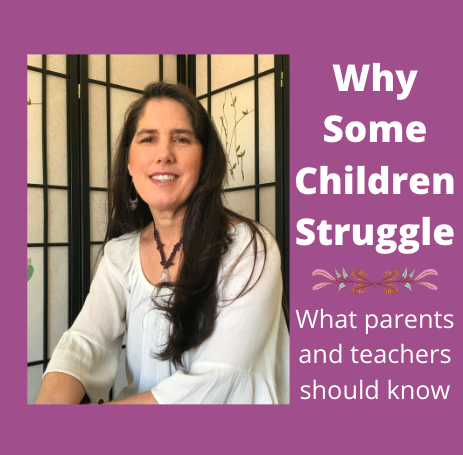|
I hold a fundamental belief that all children want to learn and succeed in school, although they may eventually compensate for their learning struggles by appearing not to care or to be lazy. To a child to whom learning does not come easily, he has to use so much mental effort to concentrate and learn during the school day that he cannot fathom the idea of having to continue at home in the form of homework. After a few years of trying hard without success, some students do indeed give up.
If you have ever taken an academic class presented in a foreign language, you might recollect the effort it takes to concentrate in that new language. One can spend only so much time in such a focused state before all attention is lost. I can remember such a time when I took a linguistics course at a university in Mexico, where I was an exchange student learning Spanish. The class was so cognitively demanding that I could only concentrated for about 15-20 minutes, after which I was really not capturing any information. My brain was simply too tired.
Children who struggle are not able to keep up with their classmates in one or more areas, which can be as frustrating to the teacher as the student.
Why do so many students struggle? During certain tasks, these children are not able to access all the areas of their brain necessary for learning, thus are not able to engage in whole brain learning. Often times, especially during stressful events, which could simply be the start of math class, blood flow to the thinking areas of the brain is restricted. This is because the emotional areas of the brain require a lot more blood during the stressful period. This is why it is counterproductive to put more pressure on the child to perform once that cortical area has been cut off.
In addition, many experts who have carefully observed children with learning difficulties have noticed that most, if not all, of these children also have issues with motor and balance. They have come to realize that motor development and learning go hand in hand. I have found this to be true in my own teaching practice. Several years ago when I didn’t know what else to do, I simply put jump ropes in the hands of my 4th -6th grade struggling students and not one of them initially could jump rope. Eventually, while testing their developmental math skills, I started testing all of my students for a variety of sensory and motor development markers. There was a high correlation between those with more severe motor issues and more severe learning problems.
When studying how the brain develops, one can understand that the lower areas of the brain (parts that are responsible for balance, coordination, and eye movements) need to be developed in order for strong connections to be made to the frontal cortex (that thinking area of the brain).
If you are a teacher and would like to gain a deep understanding on the relationship between your students’ struggles, brain development, and what to do to support these students, please check out my course, “Why are my Students Struggling?” https://childrenwhostruggle.com/course
This course is perfect for you whether you are a general, special education, or resource teacher, SLP, or psychologist working in the schools. Homeschool parents would highly benefit from this course as well.
This course qualifies for 2 university credits through USD for those of you needing continuing education credits. The link to credit validation can be found on the course page link above.
If you would like to watch my Top Secrets for Helping my Struggling Students Succeed for free, then go to https://childrenwhostruggle.com/opt-in
|





0 Comments